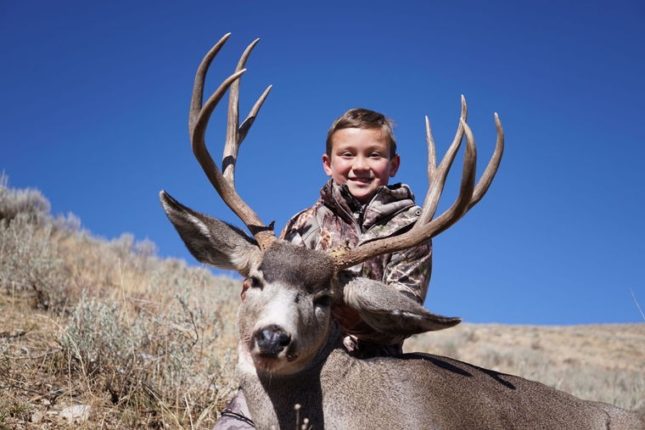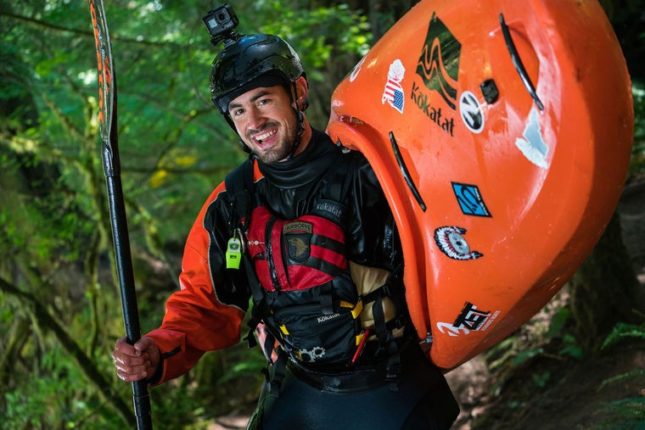Jessika Jenson of Rigby has never really had to go to work.
Well, she’s had some jobs at Kelly Canyon Ski Resort in Ririe. And she’s a part of the Dick’s Sporting Goods Contenders program that allows U.S. Olympians and Olympic hopefuls with demanding training schedules flexible employment.
But when it comes to the average, 9-to-5, everyday job? Jenson’s been able to skirt that.
“Snowboarding’s my job,” she said.
Jenson is in the midst of competing for a spot on the U.S. Winter Olympic snowboarding team. She first made the squad four years ago, placing 13th in the slopestyle competition in the 2014 Winter Olympics in Sochi, Russia.
The U.S. will send up to four women to the 2018 Winter Olympics in PyeongChang, South Korea, to compete in both big air and slopestyle. There are 12 U.S. snowboarders, including Jenson, vying for those spots. Jenson sits in fourth place with two of five Olympic qualifying competitions left to go. The final qualifier is Jan. 17 to 20, and Jenson won’t know for sure if she’s made the Olympic team until two weeks prior to the Olympic Games beginning.
Jenson is straddling the line between confident and nervous as the competition leading up to the Olympics ramps up.
“It’s good to be a little bit nervous so you’re alert and aware,” she said. “We’re in a sport that progresses every single day, and we’re just trying to keep up with the latest tricks. I don’t know if anyone would say they’re 100 percent ready. You’ve just go to go in there knowing you’re putting in the hard work and you deserve to be there.”
Jenson has evolved as a snowboarder since competing in Sochi. She’s stronger, her bag of tricks has grown and she’s learned how to remain calm amongst the mental stresses and pressures that come with competing on some of snowboarding’s biggest stages.
“I think going into this Olympics, it’ll be nice to have the experience of knowing what the pressure’s going to be like and how to stay calm, confident and just live in the moment,” she said.
Jenson’s Olympic aspirations have their roots back in 2002 when the Winter Olympics were hosted in Salt Lake City. Jenson was 11. She remembers watching the women’s snowboard halftime competition on television and becoming inspired.
Jenson, who had taken up snowboarding when she was 10, would slice through the snow at Kelly Canyon. Her grandmother used to work at the resort, and her family would get free passes.
When Jenson was 16, she competed in a local rail jam at Grand Targhee in Alta, Wyoming. A coach out of Jackson Hole saw her riding and invited her to compete in the U.S. Ski and Snowboard Association Intermountain Series.
“I showed up there and I didn’t really have much experience hitting jumps, but I figured it out and did pretty well in my age group,” Jenson said.
Jenson ended up competing at nationals that same year, where she placed second. Suddenly, she realized she had the talent necessary to turn snowboarding into something more.
When Jenson was 18, she started riding professionally and competing in pro contests. When she was 20, she made the U.S. women’s snowboarding team. Two years after that, she made the Olympic squad.
It was an honor, Jenson said, to make her first Olympic team. She wants that feeling again.
“It was such a surreal experience the last time around,” she said. “I’d like to have another experience and be able to say I got to the Olympics twice and add another Olympic ring to the hand. I’ve invested a lot in these last four years, and I’ve been trying my best and working my hardest. I would just be another dream of mine to make the next Olympics and have another shot of getting a medal.”



